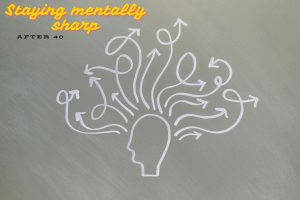
Causes of Nausea
Selective amnesia is a psychological phenomenon that affects memory. It is characterized by the inability to recall specific events or information, often linked to trauma or stress. This blog will explore its meaning, provide examples and discuss measures to prevent or cure this condition in Kenya.
What Is Selective Amnesia?
Selective amnesia refers to a type of memory loss where specific memories are intentionally or unconsciously blocked from recall. This condition is often seen in individuals who have experienced traumatic events. Unlike general amnesia, where memory loss is broader, selective amnesia focuses on particular aspects of one’s past.
The term is sometimes used interchangeably with dissociative amnesia. However, selective amnesia primarily involves the inability to remember specific information, while dissociative amnesia can involve larger memory gaps.
Understanding the selective amnesia meaning is crucial for recognizing its impact on mental health.
Examples of Selective Amnesia
Several examples of selective amnesia can illustrate how this condition manifests in real life. For instance, a person who has survived a car accident might forget the details of that specific event. They may recall their life before the accident, yet the memory of the incident itself remains inaccessible.
Another example involves individuals who have experienced abuse or trauma. These individuals might block out specific memories related to their experiences, which can be a coping mechanism.
In some cases, selective amnesia can affect academic performance. A student who experiences high levels of stress might forget important information during exams, impacting their overall results.
These examples demonstrate how selective amnesia can influence various aspects of life.
Measures to Prevent and Cure Selective Amnesia in Kenya
In Kenya, addressing this disorder involves a combination of preventive measures and therapeutic approaches. While it may not always be possible to prevent it, certain strategies can reduce its likelihood.
1. Awareness and Education
Raising awareness about mental health is essential. Educational programs can inform individuals about the effects of trauma and stress on memory.
Workshops and seminars can be organized in schools, workplaces, and community centers. These initiatives can promote mental health awareness and encourage open discussions about trauma and its effects.
2. Therapy and Counseling
Therapeutic approaches play a crucial role in treating the phenomenon. Counseling can help individuals process traumatic experiences. Cognitive Behavioral Therapy (CBT) has shown effectiveness in addressing the underlying issues associated with the disorder.
In Kenya, access to mental health services has been increasing, yet challenges remain. Efforts to improve mental health infrastructure can enhance access to therapy and counseling for those in need.
3. Support Groups
Support groups provide a safe space for individuals to share their experiences. These groups can foster a sense of community and belonging. Sharing stories can help individuals confront their memories in a supportive environment.
Support groups can be organized by local organizations or mental health practitioners. Encouraging participation can help individuals feel less isolated in their experiences.
4. Mindfulness and Stress Management
Practicing mindfulness techniques can help individuals manage stress and anxiety. Mindfulness meditation encourages awareness of thoughts and feelings without judgment.
Stress management strategies, such as deep breathing exercises, can also be beneficial. Individuals can learn to recognize and address stressors before they lead to memory issues.

Myths and Misconceptions About Selective Amnesia
Various myths surrounding selective amnesia can contribute to misunderstandings. One common myth is that individuals with the disorder are simply being forgetful. In reality, this condition is often rooted in deeper psychological issues.
Another misconception is that selective amnesia is always permanent. While some individuals may struggle with long-term memory loss, others can recover with appropriate treatment.
Educating others about the disorder can help dispel these myths. Providing accurate information can lead to better understanding and support for those affected.
Read Also: Fruits for Heart Health
The Importance of Seeking Help
Recognizing the signs of selective amnesia is crucial for timely intervention. Individuals who experience memory loss related to trauma or stress should seek professional help.
Accessing mental health services can lead to improved well-being. Early intervention often results in better outcomes, allowing individuals to reclaim lost memories and cope with past trauma.
In conclusion, selective amnesia is a complex condition that can significantly impact an individual’s life. Understanding its meaning, its examples and preventive measures is vital for mental health awareness.
In Kenya, efforts to address this condition through education, therapy, and support groups are essential. By fostering open discussions and providing resources, communities can better support individuals facing the condition.
Have you ever experienced a situation where you forgot something important? What were your reasons? Please share your thoughts in the comments.






